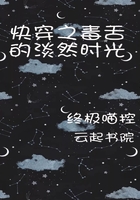In the crowd which thronged the steamer's dock at Hoboken, Clementina strained her eyes to make out some one who looked enough like her lover to be his father, and she began to be afraid that they might miss each other when she failed. She walked slowly down the gangway, with the people that thronged it, glad to be hidden by them from her failure, but at the last step she was caught aside by a small blackeyed, black-haired woman, who called out "Isn't this Miss Claxon? I'm Georrge's sisterr.
Oh, you'rre just like what he said! I knew it! I knew it!" and then hugged her and kissed her, and passed her to the little lean dark old man next her. "This is fatherr. I knew you couldn't tell us, because I take afterr him, and Georrge is exactly like motherr."
George's father took her hand timidly, but found courage to say to his daughter, "Hadn't you betterr let her own fatherr have a chance at herr?" and amidst a tempest of apologies and self blame from the sister, Claxon showed himself over the shoulders of the little man.
"Why, there wa'n't no hurry, as long as she's he'a," he said, in prompt enjoyment of the joke, and he and Clementina sparely kissed each other.
"Why, fatha!" she said. "I didn't expect you to come to New Yo'k to meet me."
"Well, I didn't ha'dly expect it myself; but I'd neva been to Yo'k, and I thought I might as well come. Things ah' ratha slack at home, just now, anyway."
She did not heed his explanation. "We'e you sca'ed when you got my dispatch?"
"No, we kind of expected you'd come any time, the way you wrote afta Mrs.
Landa died. We thought something must be up."
"Yes," she said, absently. Then, "Whe'e's motha?" she asked.
"Well, I guess she thought she couldn't get round to it, exactly," said the father. "She's all right. Needn't ask you!"
"No, I'm fust-rate," Clementina returned, with a silent joy in her father's face and voice. She went back in it to the girl of a year ago, and the world which had come between them since their parting rolled away as if it had never been there.
Neither of them said anything about that. She named over her brothers and sisters, and he answered, "Yes, yes," in assurance of their well-being, and then he explained, as if that were the only point of real interest, "I see your folks waitin' he'e fo' somebody, and I thought I'd see if it wa'n't the same one, and we kind of struck up an acquaintance on your account befo'e you got he'e, Clem."
"Your folks!" she silently repeated to herself. "Yes, they ah' mine!" and she stood trying to realize the strange fact, while George's sister poured out a voluminous comment upon Claxon's spare statement, and George's father admired her volubility with the shut smile of toothless age. She spoke with the burr which the Scotch-Irish settlers have imparted to the whole middle West, but it was music to Clementina, who heard now and then a tone of her lover in his sister's voice. In the midst of it all she caught sight of a mute unfriended figure just without their circle, his traveling shawl hanging loose upon his shoulders, and the valise which had formed his sole baggage in the voyage to and from Europe pulling his long hand out of his coat sleeve.
"Oh, yes," she said, "here is Mr. Osson that came ova with me, fatha; he's a relation of Mr. Landa's," and she presented him to them all.
He shifted his valise to the left hand, and shook hands with each, asking, "What name?" and then fell motionless again.















